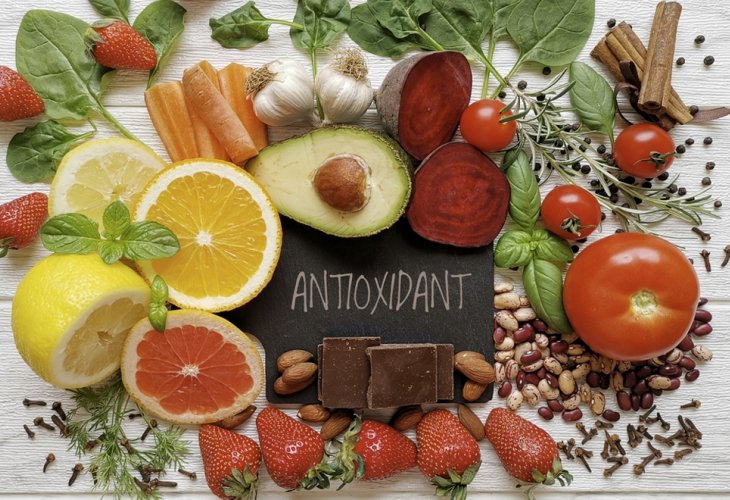Why You Need Antioxidants in Your Diet
What are free radicals, why do we need antioxidants, and where can you find them?
 (Photo: shutterstock)
(Photo: shutterstock)Many medical researchers have found evidence that numerous diseases can be prevented or improved with the help of antioxidants, which can be obtained through a wise diet and nutritional supplements.
The role of antioxidants is to prevent and neutralize oxidation processes (hence their name "antioxidants": "anti" = against, "oxidant" = oxidation) and the formation of free radicals. These are naturally and properly produced as part of the metabolic process, resulting from the energy creation in cells by oxygen and glucose.
Free radicals also enter our bodies through air pollution, unclean water, processed foods, smoking, alcoholic beverages, diets rich in saturated fats, various drugs, and more.
It should be noted that people suffering from chronic conditions like diabetes have a higher production of free radicals than healthy individuals. Similarly, athletes produce a large amount of free radicals due to extensive physical activity.
Free radicals are unstable molecules that can damage the DNA of cells and various body tissues. Researchers estimate that the DNA in our body's cells encounters 100 million hits from free radicals daily, highlighting the importance of adding antioxidant supplements to the daily diet.
There are many types of free radicals, each requiring a specific antioxidant to neutralize it.
Since the typical Western diet is low in plant-based foods rich in antioxidants, it's important to take antioxidant supplements: Vitamin D and C, as well as selenium, which you can get from eating two Brazil nuts a day (no more!). Coenzyme Q10 and beta-carotene – which you can consume from orange and yellow vegetables (carrots, sweet potatoes, pumpkins, squash), green vegetables (broccoli, peas, cabbage, lettuce, spinach, and beet greens), and fruits (papaya, apricots, peaches, watermelon, and berries).
Lutein, lycopene, grape seed extract, pomegranate seeds, and alpha-lipoic acid are excellent antioxidants.
Last but not least are medicinal herbs containing "phytonutrients," such as green tea, turmeric, ginkgo biloba, and milk thistle, which are full of powerful antioxidants. You can consume them in capsules or as an infusion.
Each antioxidant has a key role in neutralizing free radicals and maintaining the proper functioning of the immune system. In the next article, we'll dive deeper into antioxidants and their contribution to our health.
For booking home study groups featuring Rabbanit R. Batzri (free of charge), call 073-2221240

